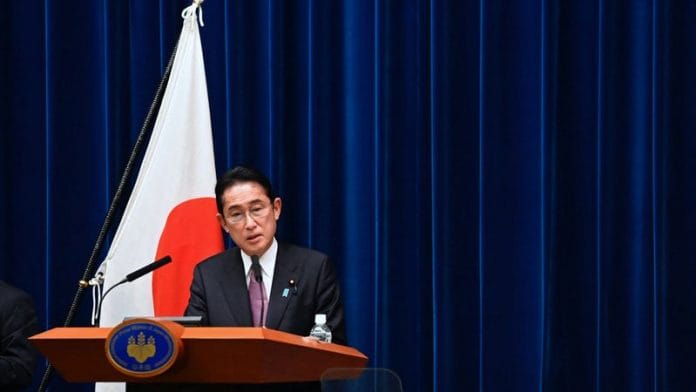The recently concluded 53rd Pacific Islands Forum Leaders’ meeting in Nuku’alofa, Tonga, underscored China’s growing influence in the Pacific Islands region. At the forum, China’s representative, Bo Qian, succeeded in persuading the members to exclude any mention of Taiwan from the final communiqué. Beijing is even pushing for Taiwan’s exclusion from the forum altogether—a move that underscores China’s strategic efforts to isolate the country further and assert its dominance in the region.
Traditionally overlooked by major powers like the US, the Pacific Islands have become increasingly pivotal. China has seized the opportunity to expand its influence, particularly in light of strategic openings missed by other powers. For instance, the cancellation of US President Joe Biden’s planned visit to Papua New Guinea in 2023 was widely viewed as a missed opportunity to strengthen a unified Indo-Pacific strategy, given the region’s growing significance.
For the US and Japan, the Pacific Islands are a crucial component of the broader Indo-Pacific framework. Consequently, these countries have become central to their strategic interests. In response to China’s growing influence, Japan is intensifying its engagement through regular summits, increased economic engagement, and developmental assistance.
China is focused on Pacific Islands
China has aggressively pursued outreach efforts in Pacific Island countries, even by poaching Taiwan’s diplomatic allies in the region and providing economic assistance. Chen Hong, Executive Director of the Asia-Pacific Research Center at East China Normal University, has said that this intense focus is closely tied to the geographical and strategic significance of the region.
China’s influence is growing in the Pacific Island countries, according to Zhang Gaosheng, an assistant researcher at the Institute of World Peace and Security at the China Institute of International Studies, and Wang Yinge from the Institute of International and Strategic Studies of the Central Party School of the Chinese Communist Party. Both China and the Pacific Island Countries value the development of mutually beneficial and win-win cooperation.
Many Chinese microblogging site Weibo’s users share similar views, believing that the US and Australia have been hesitant to invest significantly in small Pacific countries. This reluctance has led these countries to increasingly align with China.
Also read: Japan, the only country merging two security theatres in Europe and Indo-Pacific
Japan’s response and strategic engagement
Japan has undertaken proactive steps to counterbalance China’s growing influence. Between 16-18 July 2024, the 10th Pacific Islands Leaders Meeting (PALM10) was hosted in Tokyo with leaders from 18 member countries of the Pacific Islands Forum. Officially, Japan presented the summit as an initiative to ‘deepen ties’. However, some analysts interpreted the summit’s outcome document as a calculated move to align these nations more closely with Japan’s interests, particularly in countering China’s expanding presence.
Chen Xiaochen, Executive Deputy Director at the Center for Asia and Pacific Studies at East China Normal University, notes that Japan’s commitment to “strengthen defense exchanges through the ports of call of Self-Defense Force aircraft and ships” suggests a strategy to expand its self-defense forces’ activities in the South Pacific. This move, he suggests, is being masked as developmental aid to bolster Japan’s regional influence.
A lecturer in the Department of International Politics at the University of International Relations, argues that Japan used the summit to revive the so-called “China threat theory.” By promoting security assistance to Pacific Island countries, Japan aims to encourage these nations to confront China on maritime security issues. According to the scholar, this strategy also serves to extend Japan’s three seas initiatives to contain China within the South Pacific. In this context, the $ 380 million (60-billion-yen) aid package may ultimately benefit Japanese military companies more than the Pacific Island countries themselves.
The consensus among the Chinese strategic community and commentators is that Japan’s engagement in the region is less about developmental aid or climate action and more about countering China. Or to amplify the China threat narrative. Hong asserted that the West has resorted to ‘demonisation of China.’
Japan’s ‘money diplomacy’ has long faced criticism among Chinese commentators and media, who perceive it as a direct challenge. While Australia’s policy for the Pacific Island countries is seen as more justified and reasoned, Japan’s actions are viewed with heightened insecurity by Chinese media and social media. There is also a belief that both Australia and Japan are strengthening their Pacific outreach to align with and support the US’ Indo-Pacific strategy. The Chinese discourse implies that Japan’s engagement with the Pacific Island countries is strategically aimed at winning them over to its side.
Sana Hashmi is fellow at Taiwan-Asia Exchange Foundation. She tweets @sanahashmi1. Views are personal.
(Edited by Ratan Priya)






